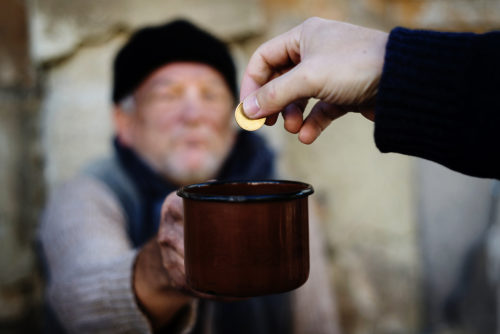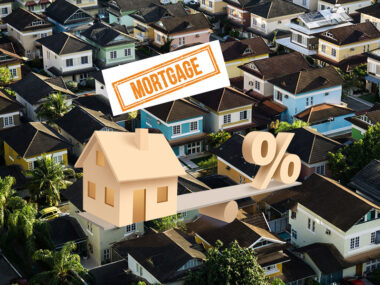Two decades into the 21st century, it’s tempting to think everything is headed in a positive direction. The stock market is doing well, the housing market is riding high, and unemployment is down. However, if you wind back the clock just a little over a decade, things looked just as good — until December 2007 rolled around.
As the events that would eventually go down in history as the “Great Recession” began to unfold, financial disaster suddenly faced many American citizens. The group that was iconically hit the hardest was comprised of the millions of individuals living below the poverty line. Many families living from paycheck to paycheck suddenly found themselves without employment, in houses that weren’t worth the mortgage attached to them, and desperately looking for a way out of their predicament with no job opportunities in sight.
Table of Contents
The Effects of a Recession on Low-Wage Employees
While everyone feels the negative effects of a recession, there’s no doubt that the impact is greater on low-wage and minimum wage employees than on the wealthy or those in the dwindling middle class. Take a closer look, and you’ll see that there are several distinct factors that tend to drive these harsher conditions.
Unemployment and Fewer Job Opportunities
It’s tempting to view some employers as an Ebenezer Scrooge type, counting their money and sending their helpless victims to the poor house. However, there can be completely justifiable reasons for employers to make drastic decisions during an economic downturn.
The strain of a recession often directly impacts the bottom line of a company, draining their profits, throttling their operating income, and leaving them scrounging for ways to make ends meet.
One of the most common ways for a company to save face and cut costs is by slashing the personnel budget. Layoffs are a nefarious calling card of recessions as employers attempt to stay in the black and fend off insolvency. Cost-cutting through layoffs has two nasty side effects:
- It causes the unemployment rate to spike.
- It creates job scarcity.
This combination results in the dual strain of more people looking for jobs and fewer jobs being available. The effect is particularly dramatic for those working low-skill jobs, as they are often replaced by more affordable, automated alternatives that make their skills redundant.
Loss of Income
Even if a low-income employee doesn’t lose their job, they can often feel the reverberations of a recession trickle down to them in the form of reduced wages or slashed hours.
Again, rather than being purely spurred by corporate greed — as is often a stigma attached to such cases — wage and hour reductions are a result of executives and managers looking for ways to avoid dreaded layoffs in the first place. By reducing an employee’s maximum work hours to 29 instead of 40, for example, they provide more work to go around.
This also allows executives to avoid extra costs associated with benefits. By shifting full-time employees to under 30 hours, they can categorize their employees as part-time. If this helps a company remain under 50 full-time employees, it can entirely eliminate the need to provide healthcare benefits. From the low-income worker’s perspective, it would make more sense to cut executive salaries — which minimally affects a minority of high-paid individuals — than to cut important benefits and pay for a majority of at-risk employees.
Other Effects of a Recession on Poor Populations
Along with the obvious concerns of reduced hours, lost benefits, and unemployment, there are a variety of other negative side effects that ripple out into poor communities during a recession:
Poor Health Outcomes
One natural side effect of less income is a lack of adequate, affordable health coverage. Those who are financially struggling through a recession will often skip preventative appointments, hold off on medical procedures, and stop taking medication. This typically stems from an inability to find affordable options, pay for copays, or cover other out-of- pocket expenses.
Decreased Educational Opportunities
Another repercussion comes in the form of education. If an individual loses their low-skill job due to being replaced by automation, for instance, it may seem like a good idea for them to go to college or a trade school to learn new, more valuable skills.
However, the natural strain that comes with a lack of finances necessarily pushes those struggling with the cycle of poverty to compromise on this educational objective. Instead, they opt for more low-income employment in order to cover basic needs such as shelter, clothing, and food.
Increased Addiction Rates
Along with the natural challenges that accompany a recession, many choose to exacerbate a difficult situation by turning to unhealthy (and often extremely expensive) coping mechanisms. One study showed that 58.3% of participants reported an increase of drug use during an economic recession. This increase in substance abuse was spurred by a variety of recession-related factors, including:
- More free time due to a lack of work.
- Greater availability of drugs.
- Increased stress for those who still had jobs.
- A desire for comfort after the loss of valuable things, such as stable income and social status.
Increased Criminalization of Poverty
As the death grip of a recession intensifies, poor populations may also face an increase in the criminalization of poverty. As funds dry up and employment becomes difficult to find, some individuals commit minor infractions out of desperation.
These violations of the law can incur court fines and fees and lead to incarceration. This, in turn, further stresses the individual’s economic situation, perpetuating the cycle and adding to the stigmatization of the poor that is associated with the criminalization of poverty.
Increased Homelessness
With so many factors relentlessly damaging household financial stability, another vicious recession side effect is the increased number of those who cannot afford to pay their mortgage or rent.
As the financial strains mount, the rate of homelessness for poor populations can often skyrocket. For example, in the early days of the Great Recession, the number of families that entered New York City homeless shelters increased by 40% compared to the previous year.
Are Poor Populations at Risk From an Impending Recession?
With so many factors threatening Americans living in poverty, one critical inquiry is whether a recession will strike in the near future. After all, economic downturns are a normal part of history — six recessions have occurred in the U.S. during the brief period since the 1960s.
Bloomberg Economics has created a model that regularly calculates the odds of a recession in the next 12 months based on the most recent economic data. In December of 2019 — using data from two months earlier — the model predicted a 29% chance that a recession would strike in the next year.
This number may seem high, especially when you consider the fact that it also signaled a 2% increase from the previous month. However, when you take a broader perspective into account, the figure is actually lower than other highs reached over the course of the previous year. Additionally, November’s initial data seemed to indicate a further decrease in the odds of a recession for the upcoming month. At that point, the risks stabilized at below a one-third chance.
Nevertheless, 29% certainly doesn’t represent a good risk factor when the subject in question is an economic recession. As the 2020s begin, the threat of future economic instability still continues to loom large, and America’s low-income households must continue to brace themselves for whatever financial challenges lie ahead.
Image Source: https://depositphotos.com/





